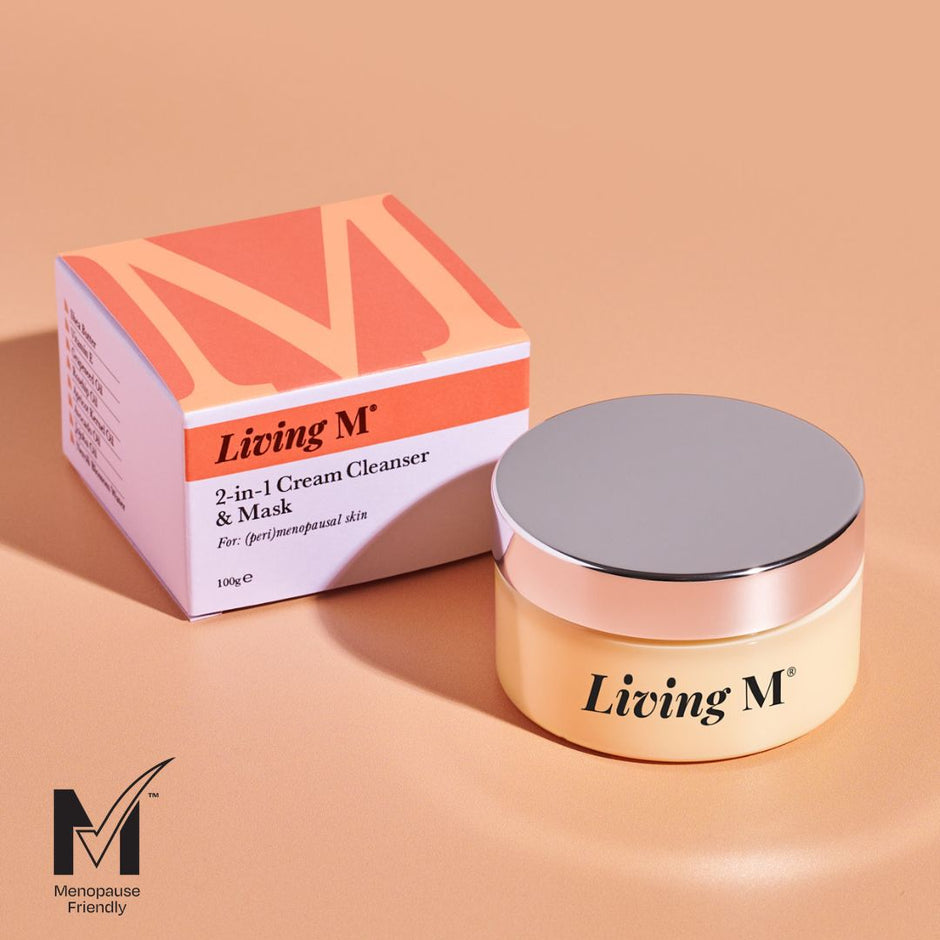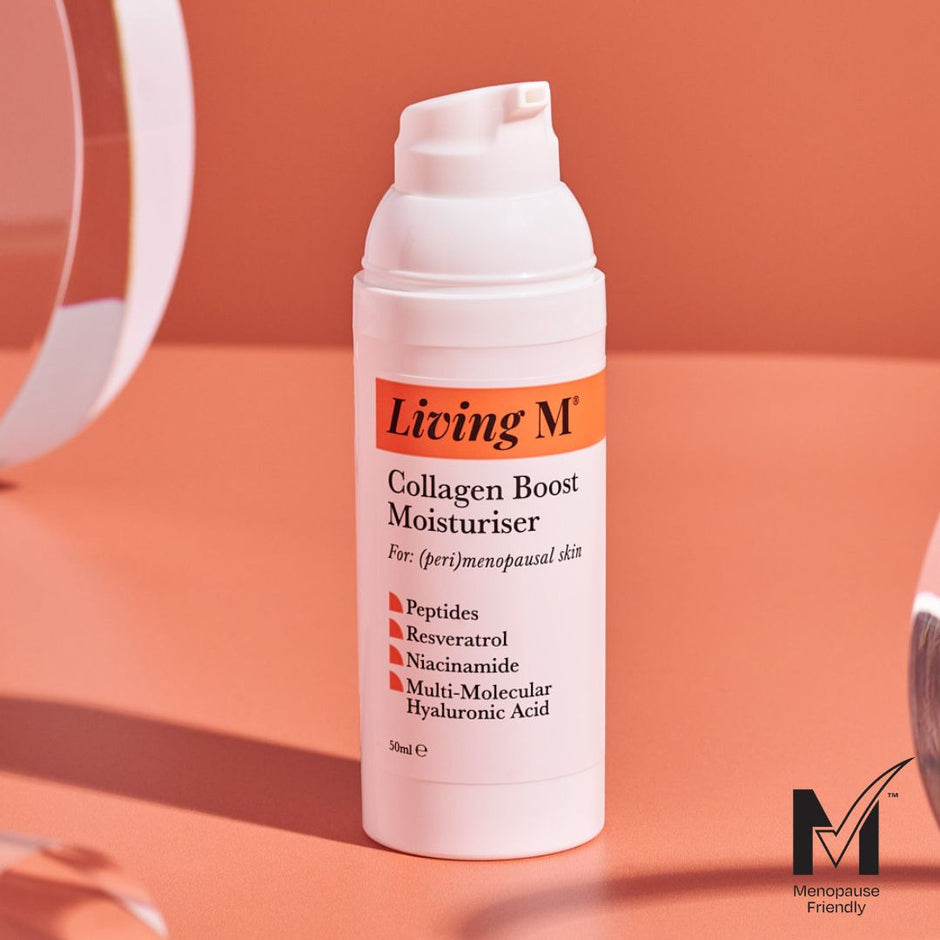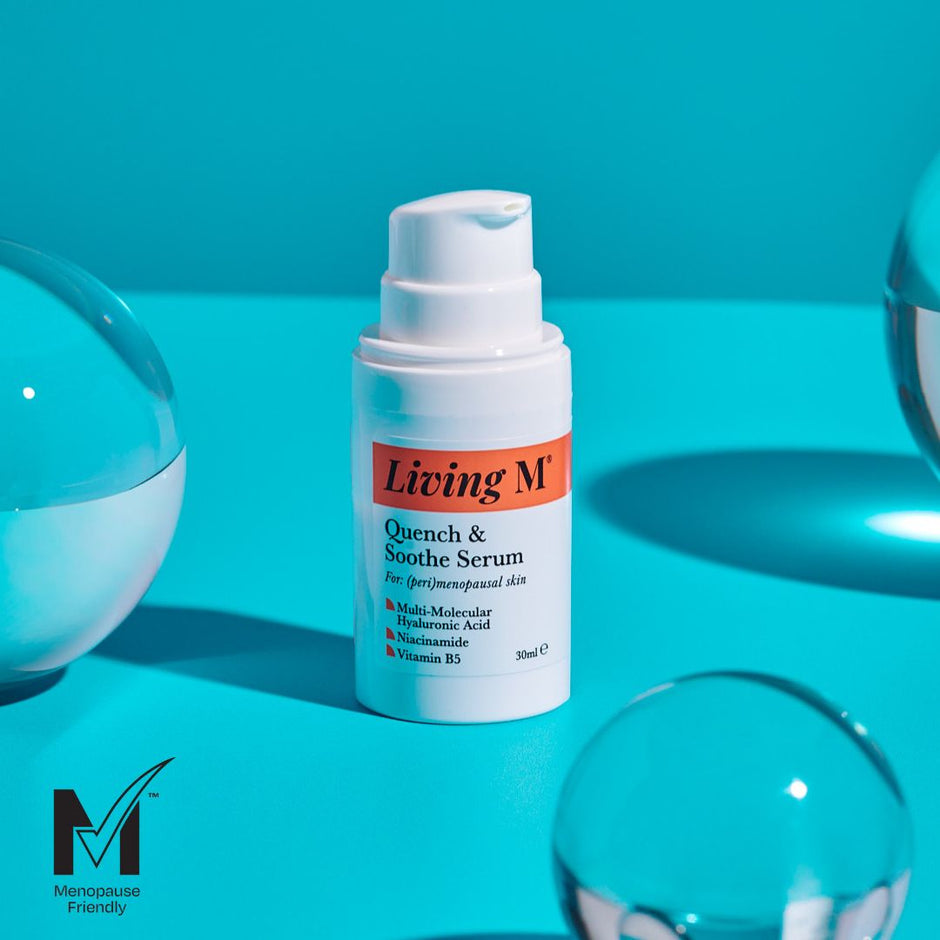Just when we thought we were getting to grips with menopause we find out that a lot of our early symptoms can be caused by, wait for it, too much oestrogen! Studies have shown that peri-menopausal oestradiol levels were about 30% higher * than pre-menopause.
But I thought menopause was all about losing our oestrogen, I hear you say? Well it is and it isn’t.
The first hormone that actually starts to decline is our lesser spoken about, rather necessary friend, progesterone. What does progesterone do for us? Well, it is a mood stabiliser so helps to keep us calm, it helps us fall off to sleep, regulates our cycles by retaining the lining of our womb and it keeps oestrogen in check, controlled, free from crazy roller-coastering. Until it starts to decline, that is. The result of this and random oestrogen spikes throughout the month, often leads to oestrogen dominance or high oestrogen levels by comparison to our progesterone. This is why many people can find early peri-menopause more challenging than the latter stages of menopause.
More anovulatory cycles (periods where we don’t ovulate, which is common in peri-menopause), years of being on contraceptive pill and stress can all contribute to reduced progesterone levels at a time when we could really do with some on our side.
What are the signs?
Progesterone will start to decline in peri-menopause and you may notice changes like: instead of feeling full of beans, on the ball, sociable and affectionate around ovulation time, suddenly everything and everyone might irritate you. You may choose solitude over company until these extreme feelings pass. Flying off the handle at the smallest of things and turning into the incredible hulk because someone left a sock on the stairs, maybe all too familiar. Fear not, this is not you or your fault and it is definitely not permanent, it is the result of wild flying oestrogen and declining progesterone. Your cycles might be shorter in length, periods heavier than usual and other common signs of oestrogen dominance include: bloating, headaches, anxiety, heart palpitations, panic attacks, difficulty sleeping, mood swings and rage. What a delight!
What can we do about it?
Whilst we can’t control the natural ageing process and the declining and fluctuating hormones that go along with it, there is plenty that we can control to minimise the impact and this starts with:
STRESS MANAGEMENT
When we are stressed our body will favour making cortisol (stress hormone) over progesterone. So it is so important to get ourselves out of stress responses, flight or flight as quickly as possible.
After a difficult event, a full-on day at work, meltdowns at dinner time, we need to find a way of signally to our bodies and brains that we are ok now, we are safe so that our nervous system can return to neutral.
Things like: Singing, spending time with friends, kissing (for longer than 6 seconds…get your stop watches at the ready), laughing, doing something creative and believe it or not, having a good old cry, are all great ways of calming our stress response.
KEEP THE GUT MOVING
If our gut isn’t moving regularly, we aren’t clearing out old oestrogen effectively or getting all the nutrients we need from the foods we are eating. The hormonal imbalance can play havoc on our gut and as a result a number of people find that they become more sensitive to certain foods like dairy, wheat and yeast and have found benefit from substituting these with other types of food.
Drinking plenty of water, eating foods from all the colours of the rainbow, getting plenty of fibre and consuming less sugar are all ways we can help to balance the gut microbiome and keep things regular.
FOCUSSING ON SLEEP
When we don’t get enough sleep, our body is again pumping us full of cortisol to get us through the day. Our ghrelin levels (feeling of hunger) increases, which is why we often crave all the food and carbs after a bad nights sleep.
What can help? Get sunlight in your eyes first thing in the morning. Take your first cuppa of the day outside, when you wake up. Reduce screen and phone time in the evening and try to wind down by reading a book or listening to a relaxing podcast before bed. Think about creating a bed time routine fit for a toddler. When children are young, we turn the lights down, give them a bath, read them a story, wrap them in a blanket, and talk quietly, these are all comforting cues to the brain that bedtime is coming soon. Try and recreate that for yourself.
SUPPLEMENTS
Some find a hormone balancing benefit from taking Agnus Castus. It comes from a plant based in the Mediterranean and it contains compounds that indirectly make progesterone production spike. (This should only be taken for no longer than three months at a time & at the advice of medical professional).
HRT in the form of micronised progesterone (which is made from vegetables like yams) can help to top up progesterone levels to create more of an even hormonal keel. There are a variety of different ways to take this, from a tablet (utrogestan), progesterone cream and there is also the Mirena coil which gives a slow release of progesterone into the body.
So when does oestrogen start to decline in peri-menopause?
Oestrogen starts to decline a little later in peri-menopause, for some this might be a few months in and for others it might take a few years. How will you know?
You will likely start to notice other changes creep in at other points throughout the month. Low mood, feeling overwhelmed, aching joints, extreme tiredness, lack of energy, vaginal dryness, urinary tract infections are all things that go hand in hand with low oestrogen levels.
Keeping a diary / using a cycle tracking app such as Flo or Balance can be a great way of documenting changes and noticing the differences in symptoms and cycle length which can help to identify what phase you are at.
If there’s one thing you take away from this, let it be that taking care of yourself, prioritising your overall wellbeing is the best thing you can do for your mind, body and hormonal equilibrium in peri-menopause. Going through this life phase is not optional, there is no fast forward button we can press, but by focussing on taking care of ourselves we can claim back some control over the impact of our symptoms, for our benefit.
So make sure you cut yourself some slack and don't blame yourself for any oestrogen heavy outbursts, drink your water, eat your greens, take time out for you, get yourself a cosy, calming bedtime routine fit for a two year old and know that there is treatment available to help, when you need it.
If you would like some ongoing support around subjects like this one, Sophie runs club meno, which is a supportive online community, designed to help with tips, tricks and to help you get the best out of this time. For more details head to: https://www.hormonesontheblink.com/clubmeno




